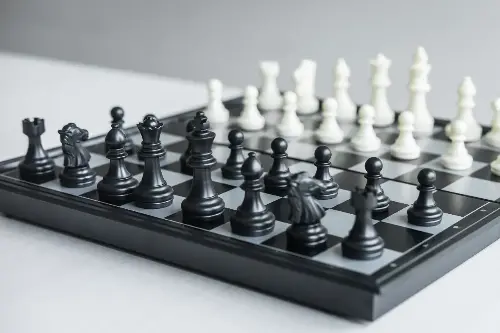Keeping the brain active is akin to flexing the muscles of the mind — it shapes our cognitive abilities, underpins our decision-making skills, and can often be a bastion against the onset of neurological decline in our golden years. Whether you’re a sprightly child or a seasoned senior, brain games provide a fun and effective way to engage the intellect and stave off the cognitive cobwebs. Here we explore five essential brain games that cater to everyone, offering a mental workout that is as enjoyable as it is beneficial.
Firstly, there's the classic game of chess, a strategic board game that has endured the test of time for a reason. It is the ultimate test of foresight, planning, and tactical execution. Every move on the chessboard challenges players to think ahead, consider multiple factors, and weigh potential outcomes. The beauty of chess lies in its adaptability: it can be as simple or as complex as the players decide. It’s no wonder that chess has been linked to improving problem-solving skills and even enhancing memory. Moreover, with online platforms now hosting chess games, it’s never been easier to find a worthy opponent, regardless of age or skill level.

Crossword puzzles are another timeless favourite, inviting players to summon their word knowledge and lateral thinking prowess. The black-and-white grids, found in daily newspapers and dedicated puzzle books, are brain-teasing playgrounds where semantics, trivia, and comprehension dance together. For children, simpler puzzles can enhance vocabulary and spelling skills, while for adults and seniors, the more intricate puzzles can be a way to sustain the sharpness of mental faculties and memory recall. There's a certain satisfaction derived from filling in all the right words that stretches beyond mere completion: it nurtures a sense of language and culture.
Sudoku is our third contender. This number-placement puzzle demands logic and pattern recognition, requiring the puzzle solver to position numbers typically between one and nine in rows, columns, and grids without repeating them. The simplicity of Sudoku’s rules belies the complexity of the challenges it presents. Regular engagement with Sudoku is known to help develop quick thinking skills and can improve concentration. As an added benefit, Sudoku puzzles come in varying levels of difficulty, ensuring that everyone from the novice to the expert can find their appropriate level of challenge.
Brain teasers and riddles are an expansive category of brain games that englobe a multitude of formats — from logic puzzles that pit your reasoning abilities to the test to riddles that stir the imagination and creative thinking. These short, sharp challenges can be especially engaging for groups, sparking discussion and collective problem-solving sessions. For children, brain teasers can be an excellent tool to teach persistence and patience, while for older players, they're a means to preserve mental agility and even slow down the cognitive ageing process.

Lastly, memory games should not be overlooked. Such games often require players to remember the location of matching cards, the sequence of patterns, or a string of words. Something as basic as the childhood game of 'Pairs' can be adapted for any age group to aid memory retention and cognitive speed. For those more technologically inclined, digital memory games can offer an interactive experience with immediate feedback and progressive levels of difficulty. By continually challenging the brain to recall information, we effectively ensure the gears of cognition remain well-oiled and efficient.
These brain games do much more than pass the time or provide entertainment. They encourage neural plasticity — the brain's ability to reorganise itself by forming new neural connections — thereby reinforcing the cognitive reserve. This is integral for later life, with studies suggesting that engaging in mentally stimulating activities can delay the onset of dementia-related symptoms.
Integrating these brain games into a regular mental exercise routine is akin to a daily jog for the mind. They can break up the monotony of daily life, inject a sense of play, and provide shared activities for friends and family. The advantages are impressive, and, when it comes down to it, who doesn’t delight in the feeling of a mental stretch — that curious mix of challenge, frustration, and eventual triumph inherent to solving a complex puzzle or mastering a strategy? Keep your mind active and empowered with these brain-boosting adventures, for truly, a mind that continues to learn is a mind that stays young.
